-
ABOUT US
-
ACADEMICS
Curriculum Program
Departments
- English
- High School Chinese
- Primary and Junior School Chinese.
- High School Mathematics
- Middle School Mathematics
- Primary School Mathematics
- Music and Fine Arts
- Physical Education
- Physics
- Chemistry
- History and Geography
- Physical Science and Optional courses Department
- Middle School Biology
- High School Biology
- Social Sciences
- Computer Science
- Courses in Primary School
Achievements and Matriculations
College Counseling
Science & Technology Innovation Contest
Subject Competition
-
ARTS
-
ATHLETICS
-
AT SHSID
SHSID ∣ TIMES
PTSA
Club Exhibition
- 龙吟社
- Live 2 Drama
- Choir
- Hip-pop Dance Club
- The Primary School Dance Troupe
- Symposiums Club
- Biology Workshop
- You Shan
- VEX Robotic
- Peking Opera Club
- Baseball Club
- Model United Nations
- The World Scholar’s Cup
- Future Problem Solving Club
- United States Academic Pentathlon
- OM Club
- AMC Club
- Music for Patients
- SHSID Gazette
- Smile Charity
- Cultural Moments
- SciAcademy
- Stem Doge Alliance
- Chinese Debate Club
- IAA
- Mock Trial Club
- Zhengming Club
- Furry Friends
- GT-Racing
- Village Radio
- IMMC Club
- Creative Design and Intelligent Fabrication
- Future City Research Project
- ECOCAP
- AdvocaSEA
- SPDC
- Medishine
- Floorball Club
- Animusic MTC
- Wings Up
- All Booked
- Cyano
- Birding Community
Health and Wellness
Campus Safety
Cafeteria Service
-
ADMINISTRATION
-
ADMISSIONS
-
ALUMNI
Alumni Information
Honors Students
- Class of 2025
- Class of 2024
- Class of 2023
- Class of 2022
- Class of 2021
- Class of 2020
- Class of 2019
- Class of 2018
- Class of 2017
- Class of 2016
- Class of 2015
- Class of 2014
- Class of 2013
- Class of 2012
- Class of 2011
- Class of 2010
- Class of 2009
- Class of 2008
- Class of 2007
- Class of 2006
Who Studied at SHSID
SHS Foundation
-
DOCUMENTS
Primary and Middle School History and Geography Department: Grade 7 History Project - The Age of Exploration
What drives humans to explore the unknown, even when faced dangers ahead? Looking back to the 15th century, the Age of Exploration, we might find answers in the experiences of the great explorers. Over the past month, seventh-grade students engaged in a project-based learning "What lies Beyond the Edge of the Map" in history class. Through this project, they explored the profound global impact of the Age of Exploration and reflected on how the "openness" and "isolation" influence our lives today. In the 16th week history class, the students showcased their learning outcomes through an Explorer Funding Fair.
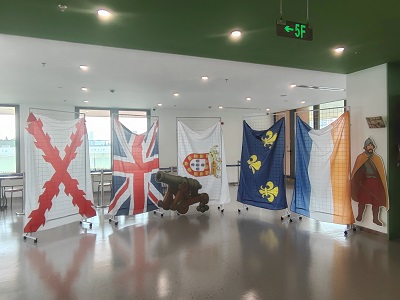
Transforming into crew members of the Age of Exploration, the students presented their "voyage experiences" to "royalty and nobility" to raise funds for their next expedition. Each "fleet" consisted of three members: the Captain (Explorer) who writes the journey log, the Navigator who draws the map, and the Quartermaster who makes an artifact.
The display event took place on the fifth floor of Building C. Classrooms were decorated with national flags, such as Portugal, Spain, England, and France. Students were divided into two halves to and present in turn. Students in S+ level went to the classroom to set up their exhibition booth first. Teachers and S/H level students played the roles of European royalty and nobility. They visited different group’s project, listened their presentations, and then decided whether to provide the fleets financial support.
Every member of groups well prepared for the presentation, introducing their simulated previous voyages to the visitors. Navigators pointed to maps, guiding guests along the routes, showcasing islands, lands, and treacherous sea area they had "discovered." Captains opened their voyage logs, recounting thrilling sea adventures – how they navigated through storms into calm waters, establishing new trade routes. The Quartermasters' displays were the most diverse and colorful. They featured 3D-printed models of grand sailing ships, handmade crafts like replicas of South American gold ornaments, Native American feathered headdresses, and religious totems made from modeling clay. Additionally, there were "exotic goods brought back from the region they arrived, such as spices, ivory (replicas), butterfly specimens, bougainvillea and other plant specimens, all serving to "open the eyes of Europeans to the New World." Working together, the three crew members passionately sought to convince the teachers and classmates to patron their next expedition with the “silver coins”.
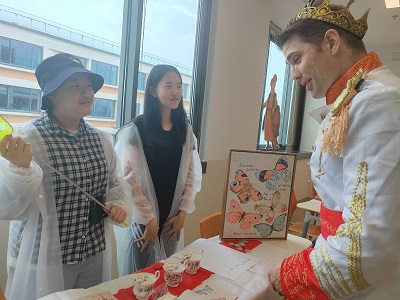
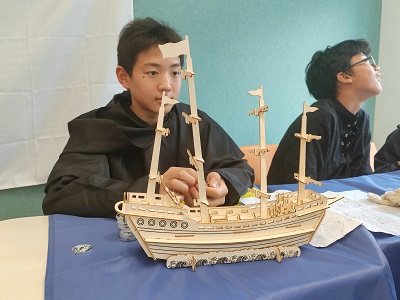
The atmosphere at the "Funding Fair" was exciting! Visiting students moved between classrooms, learning about different explorers through other groups' projects. Eager to earn more "silver coins" to support their favorite fleets, the "nobles" enthusiastically participated in the "Stamp Collection Challenge" organized by history teachers in each room. By answering questions about the explorers or completing some tasks, they could collect stamps from different countries and earn bonus "silver coins." Long lines formed in front of the teachers, whiteboards filled with students' creative answers, and rewarded "nobles" excitedly rushed off to the next booth to continue their "investment tours."
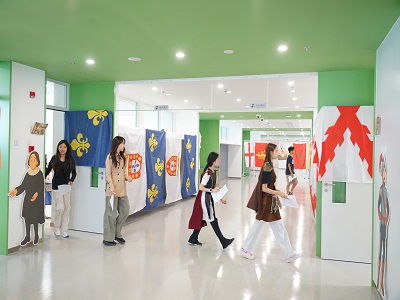
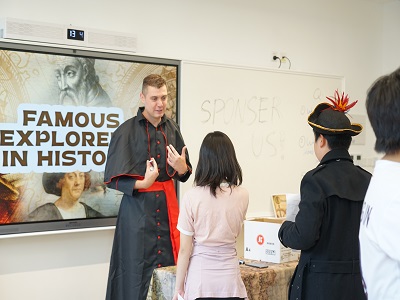
As the school bell rang, this grand, time-traveling feast of the Age of Exploration drew to a close amidst the students' reluctance to leave. Just as 15th-century explorers sailed the vast oceans with compasses and astrolabes, using courage and resilience to push boundaries, explore the unknown, chart more accurate world maps, and connect distant continents, today's seventh graders, through this "collaborative research and role-playing" project-based learning (PBL) experience, gained a deeper understanding of this pivotal historical era. They honed essential skills and academic competencies in historical research, geographical mapping, craftsmanship, teamwork, and verbal expression. May this Exploration project help students find their own compass in the ocean of knowledge. With courage as their sail and perseverance as their rudder, they explore uncharted territories and reach the new continents of their personal growth.
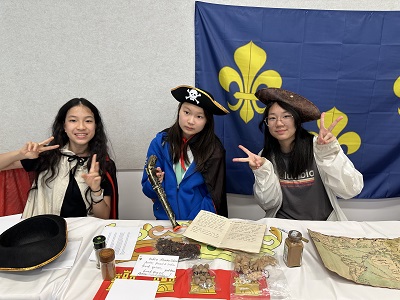
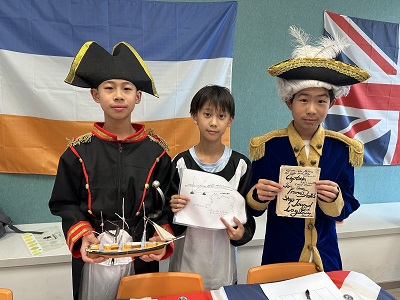
Written by Liu Chen
Proofread by Judah Kuhn
Pictures by Xu Jing, Chen Lu, Liu Chen
Edited by Cong Luo
Reviewed by Yunuo Li, Chenli Shen, Cong Luo, Sterling Endersby